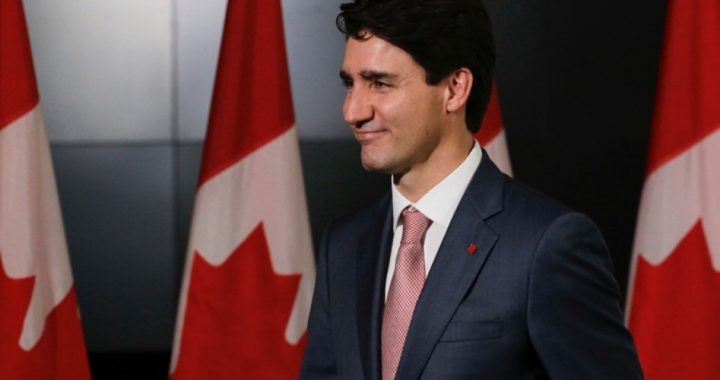
With an election just 11 months away, the left-wing government of Canadian Prime Minister Justin Trudeau is proposing nearly $600 million in tax breaks for “trusted” news outlets.
“To protect the vital role that independent news media play in our democracy and in our communities, we will be introducing measures to help support journalism in Canada,” Finance Minister Bill Morneau told the House of Commons last Wednesday.
Those measures include small tax breaks to individuals donating to qualified nonprofit news organizations and a temporary 15-percent tax credit for subscriptions to certain online news outlets. The bulk of the package’s five-year, $595-million cost, however, consists of refundable tax credits — meaning businesses can get back more than they’ve paid, with other taxpayers picking up the tab — for labor costs at qualifying news companies.
“To determine eligibility for the credit, the government plans to create an independent panel drawn from the ‘news and journalism community,’ which will also ‘define and promote core journalism standards (and) define professional journalism,’” reported the National Post.
Newspapers in Canada, as in much of the rest of the world, have been struggling to stay afloat in the Internet age and have been lobbying for a government bailout for years. “The publishers’ association even went so far as to suggest a model of how the money might be delivered, complete with promises of what sort of coverage they would provide in exchange,” noted National Post columnist Andrew Coyne.
Naturally, many of the money men in the news business are happy about the tax breaks. Paul Godfrey, the CEO of Postmedia, publisher of the National Post and other papers, called them “a turning point in the plight of newspapers in Canada.”
“I tip my hat to the prime minister and the finance minister. They deserve a lot of credit,” he said. “Everyone in journalism should be doing a victory lap around their building right now.”
Likewise, unions representing newspaper employees were ecstatic about the plan, seeing it as job security.
Not everyone is so sanguine about the situation.
“The media should be independent from the government,” said Pierre Poilievre, a member of Parliament from the Conservative Party. “We should not have a situation where the government picks a panel that then decides who gets to report the news. That is very dangerous.”
“There’s an election next year. And if you are a journalist who wants in on Trudeau’s $595,000,000 slush fund, he has to know that he can trust you,” wrote Ezra Levant, founder of the Toronto-based conservative website The Rebel.
Spencer Fernando, publisher of an eponymous website, observed: “The Trudeau Liberals are trying to hide the true nature of the program by saying it will be ‘independent’ from political interference, but everybody who understands life knows that’s a total joke. Whoever picks the ‘independent panel’ has the power, and it’s easy to pick people who will do exactly what you want them to do.” Indeed, as Coyne pointed out, allegedly independent senators appointed by the Liberal government have turned out to be “dependably progressive.”
The direction the “independent panel” is likely to take may be inferred from the way in which Trudeau funneled government subsidies for summer jobs only to organizations that support the Left’s agenda on abortion and LGBT issues. “If Trudeau’s Liberals consider allegiance to Canada’s radical abortion regime and the LGBT ideology to be a mandatory prerequisite to receive government funding in one area,” asked LifeSiteNews’ Jonathon Van Maren, “what’s to say they won’t demand the same thing for this funding?”
Whether such control of the media is overt or subtle, “the effect will be to inevitably and irrevocably politicize the press,” penned Coyne. In fact, he added, this is already happening since one of the issues in the upcoming election will now be whether or not newspapers should be subsidized. “Even if we think this knowledge will not affect our coverage, not even one little bit, do we really think the public will?”
“No newspaper publisher should have anything to do with this plan,” Coyne declared. “And no journalist worthy of the name should go anywhere near that accursed panel.” But will the lure of money and power be too strong for them to resist?
Photo: AP Images



